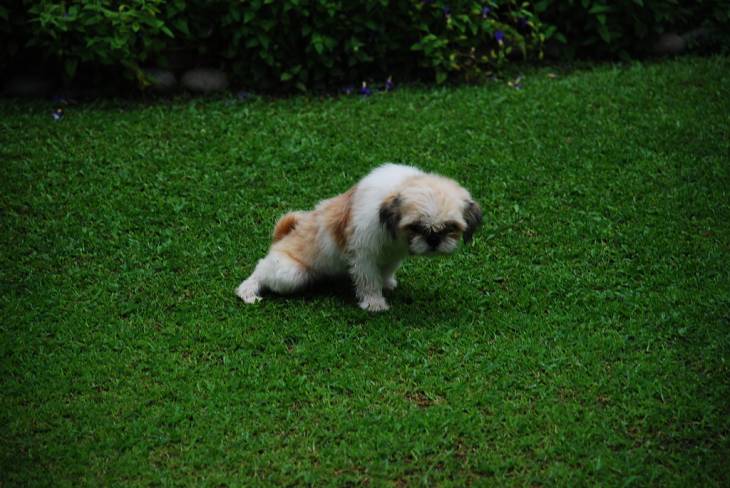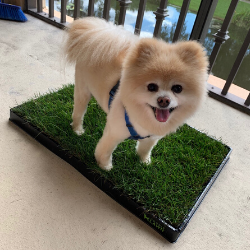Frequent Urination in Dogs (It’s Not an Unstoppable Flow !)
Your dog is a lean, mean, peeing machine. It seems like he will not stop. Even worse, he still pees where he shouldn’t go every so often, even though he was successfully potty trained - or at least, you thought he was successfully potty trained. What gives?
How Much Pee Should I Expect to Come From My Dog?
On average, a dog will urinate every four to six hours. However, some dogs have the capacity to stretch this interval out to between 8 and 12 hours - a bonus for pooches that have to "hold it" until their owners get home from work. The variance can range based on several factors, such as diet, exercise, the amount of water drank, and bathroom accessibility.
While size and breed of the dog do not affect this variance, it is noted that age does. Puppies will go potty every two hours or so, and sticking to this time interval is important during the pup's housebreaking phase. Older dogs also may end up having to take an extra trek to their designated urination spot, particularly if they're on medication.
Great NATURAL GRASS solution for:
- Apartments / no backyard;
- Housetraining puppies and adult dogs;
- Traveling with pets (hotels, boats, planes);
- Puppies during vaccination periods;
- Harsh weather outside (hurricanes, blizzards, heavy snow, etc.);
- Busy owners;
- Pet parents who have difficulty getting a dog outside;
- Old and arthritic dogs.
Your Dog Didn’t Regress, but He May Be Telling You Something

Sometimes, an uptick in urination is a physical manifestation of a dog’s emotion. For example, a dog suffering from separation anxiety may pee when left alone simply because he gets freaked out when left alone. Other times, he may pee submissively to let you know he’s cool with your authority.
In both of these cases, it’s important to note that your potty-trained pup has not somehow regressed or no longer recognizes where he’s supposed to pee. These types of frequent urination are emotional responses that are not connected to a dog’s training. The best way to combat these kinds of urination problems is to train your dog to cope with the behavioral touchstones that cause the increased pee.
It Could be a Medical Issue if your Dog is Otherwise Healthy
If your dog is in prime health, an increase in urination could be a symptom of an illness. This is especially the case if the uptick in pee frequency is accompanied by other issues. A sudden rush of urinary “accidents” or a dramatic increase in the amount of water your pooch drinks is typically accompanying signs of an underlying condition.
The list of illnesses associated with increased urination is a long, broad one. It can range from something as seemingly innocuous as a urinary tract infection to something more substantially serious like kidney disease of Cushing’s disease. Regardless of where the suspected condition falls on the spectrum, it is important that you take it seriously.
Start the Healing Process Collect a Urine Sample
It almost goes without saying that you’ll want to schedule an appointment with your vet as soon as you suspect a potential illness related to your dog’s frequent urination. Before you visit, it is prudent to collect a urine sample from your pooch so the vet can conduct a urinalysis. It isn’t a difficult task to execute, and it could be the most important piece of the puzzle that is the restoration of your little buddy’s health.
How a Medical Condition Linked to Frequent Urination May be Treated
The level of treatment that your dog may receive for a condition marked by frequent urination depends on what is wrong with your pooch. For milder issues like a urinary tract infection, your vet may prescribe antibiotics or put together a special dietary regiment. If the issue is more severe, treatments like intravenous fluid therapy or surgery may be viable options.
Above All Else - Remember that Your Dog Isn’t Doing this On Purpose
It is important to keep in mind that if your dog is sick, he is not going to be in the strongest state of mind, and he will need you to support him as much as you possibly can. Because of this, it important that you keep your cool if the increase in pee also translates to unexpected puddles in your home, and you don’t take whatever frustrations the puddles cause out on your four-legged friend. He will appreciate your tolerance and forgiveness more than you may realize.



